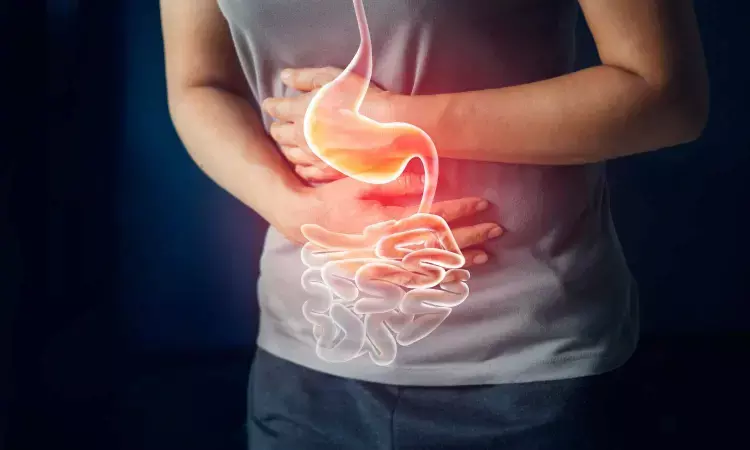- Home
- Medical news & Guidelines
- Anesthesiology
- Cardiology and CTVS
- Critical Care
- Dentistry
- Dermatology
- Diabetes and Endocrinology
- ENT
- Gastroenterology
- Medicine
- Nephrology
- Neurology
- Obstretics-Gynaecology
- Oncology
- Ophthalmology
- Orthopaedics
- Pediatrics-Neonatology
- Psychiatry
- Pulmonology
- Radiology
- Surgery
- Urology
- Laboratory Medicine
- Diet
- Nursing
- Paramedical
- Physiotherapy
- Health news
- Fact Check
- Bone Health Fact Check
- Brain Health Fact Check
- Cancer Related Fact Check
- Child Care Fact Check
- Dental and oral health fact check
- Diabetes and metabolic health fact check
- Diet and Nutrition Fact Check
- Eye and ENT Care Fact Check
- Fitness fact check
- Gut health fact check
- Heart health fact check
- Kidney health fact check
- Medical education fact check
- Men's health fact check
- Respiratory fact check
- Skin and hair care fact check
- Vaccine and Immunization fact check
- Women's health fact check
- AYUSH
- State News
- Andaman and Nicobar Islands
- Andhra Pradesh
- Arunachal Pradesh
- Assam
- Bihar
- Chandigarh
- Chattisgarh
- Dadra and Nagar Haveli
- Daman and Diu
- Delhi
- Goa
- Gujarat
- Haryana
- Himachal Pradesh
- Jammu & Kashmir
- Jharkhand
- Karnataka
- Kerala
- Ladakh
- Lakshadweep
- Madhya Pradesh
- Maharashtra
- Manipur
- Meghalaya
- Mizoram
- Nagaland
- Odisha
- Puducherry
- Punjab
- Rajasthan
- Sikkim
- Tamil Nadu
- Telangana
- Tripura
- Uttar Pradesh
- Uttrakhand
- West Bengal
- Medical Education
- Industry
GLP-1 Receptor Agonists Show Gastrointestinal Safety with Some Risks: Study

USA: Researchers have found in a retrospective study that GLP-1 receptor agonists (RAs) are generally safe for the gastrointestinal (GI) and hepatobiliary systems in patients with type 2 diabetes (T2D).
The study published in the American Journal of Gastroenterology revealed that the therapy was linked to lower risks of several GI cancers and complications compared with other oral antidiabetic drugs. However, GLP-1 RAs were associated with a higher risk of gastroparesis and intussusception, highlighting the need for careful monitoring in vulnerable patients.
The study, led by Dr. Chengu Niu from the Department of Internal Medicine, Rochester General Hospital, USA, analyzed electronic health records of adults with T2D treated across the United States between 2010 and 2020. Using data from the TriNetX network, researchers conducted a retrospective cohort analysis and included 230,415 patients receiving GLP-1 RAs, matched 1:1 with an equal number of patients on other oral antidiabetic medications such as metformin, empagliflozin, and sitagliptin.
Over a five-year follow-up, the study evaluated various GI and hepatobiliary outcomes, including gastroparesis, bowel obstruction, pancreatitis, cholecystitis, and related GI cancers.
The analysis revealed the following findings:
- GLP-1 RA use was associated with a higher risk of gastroparesis (HR 1.591).
- GLP-1 RA use was associated with a higher risk of intussusception (HR 1.383).
- GLP-1 RA therapy was linked to 15%–26% lower risks of cholangitis, bowel obstruction, ileus, volvulus, chronic pancreatitis, and procedures such as endoscopic retrograde cholangiopancreatography compared to other oral antidiabetic drugs.
- GLP-1 RA users had lower risks of pancreatic cancer (HR 0.897), gastric cancer (HR 0.838), esophageal cancer (HR 0.741), and colorectal cancer (HR 0.870).
- There were no significant differences in the risk of biliary cancer or hepatocellular carcinoma between GLP-1 RA users and other oral antidiabetic drug users.
- Rates of acute pancreatitis, cholecystitis, and cholecystectomy were similar between GLP-1 RA users and the control group.
- Overall, these findings support the gastrointestinal and hepatobiliary safety of GLP-1 receptor agonists.
The findings suggest that for patients at risk of common GI malignancies or conditions such as cholangitis and bowel obstruction, GLP-1 RAs remain a viable and generally safe option. However, clinicians are advised to exercise caution in patients with preexisting gastroparesis or intussusception, who may benefit from traditional oral antidiabetic therapies instead.
The authors noted several limitations of the study. The results show associations rather than causation, and the five-year follow-up period may not fully capture long-term cancer risks. Socioeconomic factors, access to healthcare, treatment adherence, and medication switching were not assessed and could have influenced outcomes.
"The large real-world analysis supports the gastrointestinal and hepatobiliary safety of GLP-1 receptor agonists in patients with type 2 diabetes, while highlighting the need for vigilance regarding specific complications such as gastroparesis and intussusception. Further long-term studies are needed to confirm these findings and to better assess potential cancer risks associated with GLP-1 RA therapy," the authors concluded.
Reference:
Niu, Chengu MD1,a; Sun, Kefang MD1; Zhang, Jing MD2; Elkhapery, Ahmed MD1; Zhu, Kaiwen MD1; Malik, Sheza MD1; Xue, Chao MD1; Okolo, Patrick I MD3. Gastrointestinal and Hepatobiliary Safety of Glucagon-like Peptide-1 Receptor Agonists in Patients with Type 2 Diabetes. The American Journal of Gastroenterology ():10.14309/ajg.0000000000003760, September 03, 2025. | DOI: 10.14309/ajg.0000000000003760
American Journal of Gastroenterologyglucagon-like peptide-1 receptor agonists (GLP-1 RAs)type 2 diabetes mellitus (T2DM)
Source : American Journal of GastroenterologyDr Kamal Kant Kohli-MBBS, DTCD- a chest specialist with more than 30 years of practice and a flair for writing clinical articles, Dr Kamal Kant Kohli joined Medical Dialogues as a Chief Editor of Medical News. Besides writing articles, as an editor, he proofreads and verifies all the medical content published on Medical Dialogues including those coming from journals, studies,medical conferences,guidelines etc. Email: drkohli@medicaldialogues.in. Contact no. 011-43720751
Next Story


